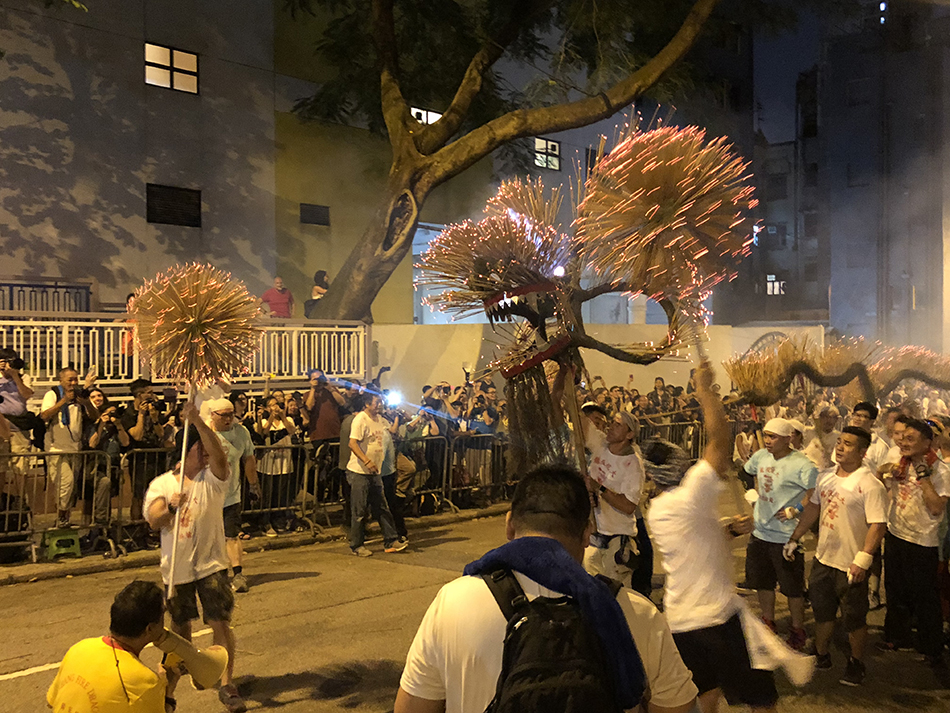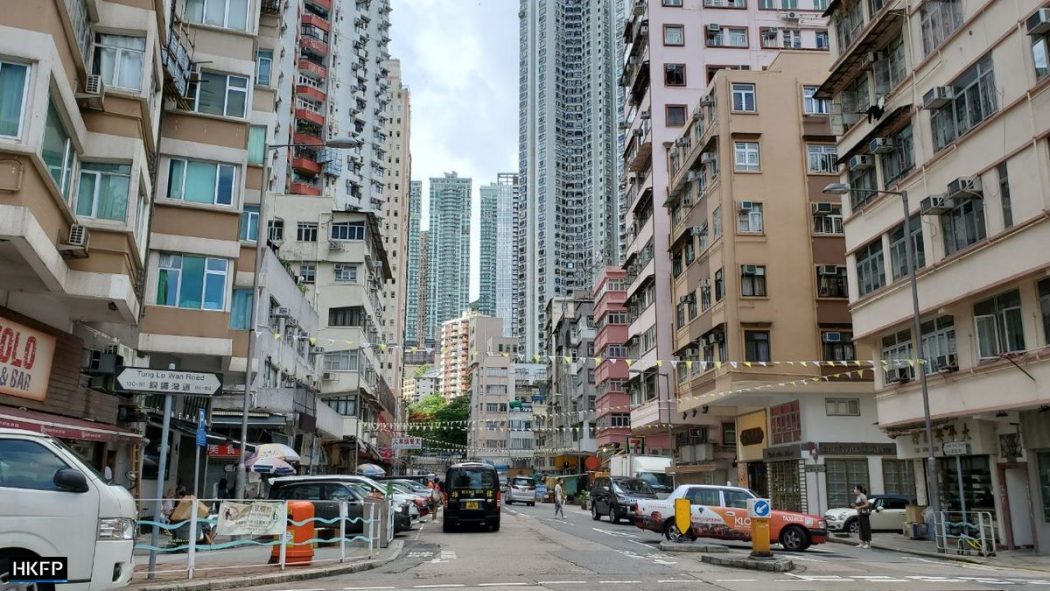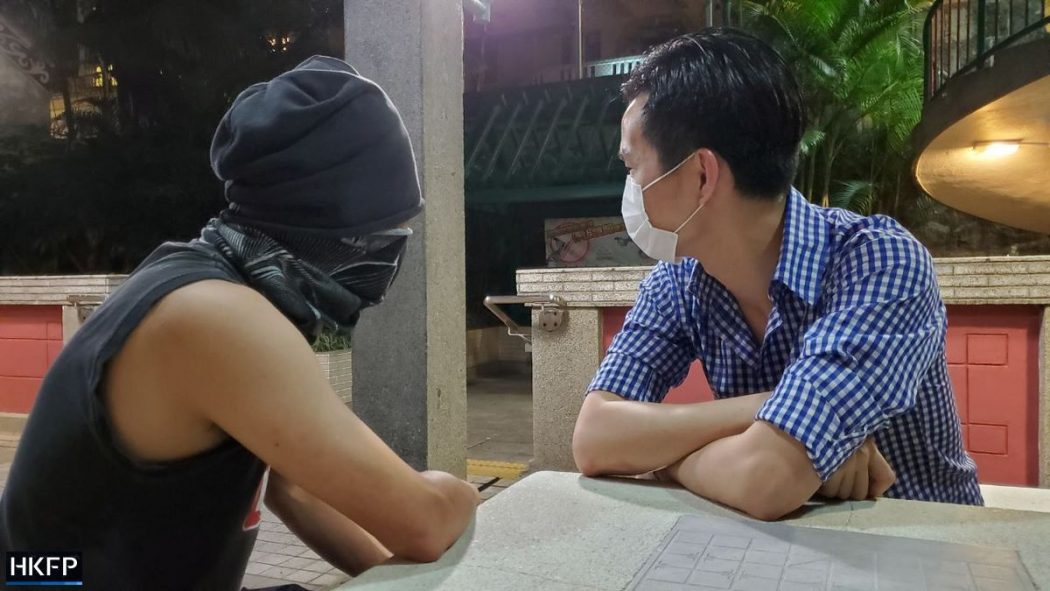The four-star Metropark Hotel used to welcome a steady flow of tourists who came for the rooftop pool, the breakfast buffet and its location in tranquil Tai Hang. Now it is hosting a very different type of guest – staff of China’s secretive new security bureau for Hong Kong.
Police stand guard outside the 33-storey building on Tung Lo Wan Road overlooking Victoria Park, the city’s iconic protest rallying site. Windows that once advertised the hotel’s services are papered up and the frontage bears China’s national emblem. A newly installed flag-pole flies China’s national flag.

Tai Hang residents were unaware that the Office for Safeguarding National Security had requisitioned the hotel until the information was leaked in East Week magazine. Local district councillors say they were only able to verify security agents were moving in the day before the opening ceremony on July 8. There was no official announcement ahead of the launch.

The agency is tasked with overseeing the implementation of the recently enacted national security law imposed by Beijing to bring Hong Kong to heel following months of anti-government protests last year. Its abrupt arrival has brought an atmosphere of fear to the neighbourhood. Residents are wary of speaking on the street. Some avoid walking past the building. It is an intense microcosm of the anxiety that has descended on the city since the legislation was enacted on June 30.
The nervous undercurrent is at odds with Tai Hang’s laidback nature. Its warren of low-rise tong lau buildings, bustling cha chaan tengs, and car repair garages sit alongside coffee shops, bistros, ramen restaurants and accessories boutiques. A few incongruous modern apartment blocks signal the gentrification of recent years, but the neighbourhood has also held on to its traditions – the annual Fire Dragon Dance is one of Hong Kong’s cultural highlights and a defining event for the community.

Tung Lo Wan Road itself is a mix of cafes, bars and grocery stores. The affordable restaurants there are popular with local students. Less than two weeks before the opening of the security bureau, the streets had been filled with stalls and visitors for a three-day festival promoting local small businesses. To some, that feels like ancient history.
“I was born and raised in this neighbourhood,” said restaurant owner Carol Mak. “I have never moved away from this area throughout 63 years of my life. It used to be nice and quiet. You see people walking their dogs carefree.”
Now she feels discomfort creeping in and anxiety at the office’s proximity to where she lives and works.

“I don’t know who these unfamiliar faces in the neighbourhood are. Will they arrest me because of what I say?” she questioned. “Will an accidental slip of the tongue be problematic?”
Expansion of power
Mak was one of only a handful of Tai Hang residents willing to speak to HKFP about the opening of the bureau and some who did grant interviews did not want to be fully identified.

One resident, who gave his name as Sean, criticised the authorities’ reluctance to properly inform the neighbourhood about the office as “China-style” bureaucracy. He compared the new bureau with the Soviet Union’s KGB security agency and the Eastern Depot – a Ming dynasty spy agency run by eunuchs.
Sean interpreted the location of the office in the east of Hong Kong as a “symbolic expansion of Beijing’s power”, extending its presence from western Sai Wan, where China’s liaison office is based. “I may opt for Fire Dragon Path and bypass Tung Lo Wan Road when entering the area,” he added. “I bet it’s similar in Sai Wan. Residents would probably avoid directly walking past the Liaison Office.”

Even his apolitical friends are concerned about their safety. “It has impacted not just ‘yellow’ (pro-democracy) citizens but everyone,” he said. “It’s not about political stance.”
The lack of transparency around the launch of the office combined with the sweeping powers it has been granted under the national security law have left Tai Hang residents with the sense that they are exposed to an unpredictable, unaccountable force headquartered in their midst.

The staff of the security bureau enjoy legal immunity and its decisions cannot be judicially reviewed by local courts. Funded by China’s central government, it can exercise jurisdiction over national security cases and also gathers intelligence. Under the new law, its officers can extract data from telecommunications providers and demand that media platforms remove content considered a threat to national security.
“National security is an unknown concept to Hongkongers. We can’t predict their actions,” said Tai Hang District Councillor Clarisse Yeung.

The new legislation criminalises secession, subversion, terrorism and collusion with foreign powers, but it has already triggered a multi-pronged attack on freedom of speech. A man found with a “Hong Kong Independence” flag was the first to be arrested under the law on July 1.
Since then, a popular protest slogan has been banned, protest songs are prohibited in schools and library books by pro-democracy figures have been pulled from library shelves. A government investigation has been launched into legislative election primaries which drew hundreds of thousands of voters but have since been declared illegal by Beijing officials.

Yeung is worried about the vulnerability of her constituents to surveillance in the neighbourhood. “Will the housewife buying groceries next to the residents turn out to be one of their agents?” she questioned.
Here to stay?
It is not yet clear whether the bureau will be a permanent fixture in Tai Hang. Yeung and other district councillors have asked Chief Executive Carrie Lam how long the bureau will be renting the building but have yet to receive a reply. Some local media cited sources who said the base was temporary. The hotel told Apple Daily that they would not accept bookings for the coming six months.

Ming Pao reported that the architectural drawings of the hotel were no longer available on the Buildings Department website but the plans for other hotel branches in Mong Kok and Wan Chai remained online. The department told the newspaper the drawing was a copyrighted artwork and its copyright owner had refused to publicise the information.
HKFP was unable to reach Metropark Hotel and its owner China Travel Service Group Corporation for comment. Enquiries about how long the requisition would last remained unanswered by the government.
Yeung told HKFP that she only learned about the bureau opening when her colleague Tramy Chan asked security guards outside the hotel what was going on. She had been informed by residents of unusual activity outside the building and arrived to find a heavy police presence. There was a notice that minor works were underway and the windows were being boarded up.

“[The guards] told Tramy to read the front page of East Week magazine,” she said, adding that officials’ decision to leak the information through media was “absurd”.
Yeung described the fear of reprisals now being felt by her constituents as representative of the wider atmosphere in Hong Kong.

“The decline of the liberal environment was definitely not unique to Tai Hang,” said Yeung. “No matter in which corner the office was set up, I’d be equally concerned as Hong Kong is our home.”
Shocked students
The confusion and fear engendered by the lack of communication around the opening of the bureau was encapsulated by a local school student Alex – a pseudonym.

He attends Queen’s College school on Tung Lo Wan Road and had no idea why there were roadblocks, dozens of police vehicles, water barricades and crowds of journalists outside the hotel on July 8.
Alex said the school instructed students to stay inside for their own safety. He ran up to an upper floor to look down at the scenes below. “Police were [conducting] stop-and-search on the pedestrians and encouraged them to change their route but without [stating] the reason,” he said.

Such was the uncertainty about what was happening that unfounded rumours circulated among pupils that police were responding to a bomb threat at the hotel.
Alex said students learned about the ceremony online and the school did not make any announcement ahead of the event.

“We felt really shocked. To be frank, we all thought it was a joke or something. We couldn’t concentrate much on our exams in the following days. It was a really uncomfortable experience.”
Alex says that he and his classmates no longer see the streets around their school as a safe place.

“We will be cautious when commuting to and from school,” he told HKFP. “We want to avoid the national security officers overhearing us discussing politics, which may constitute ‘speech crime’.”
